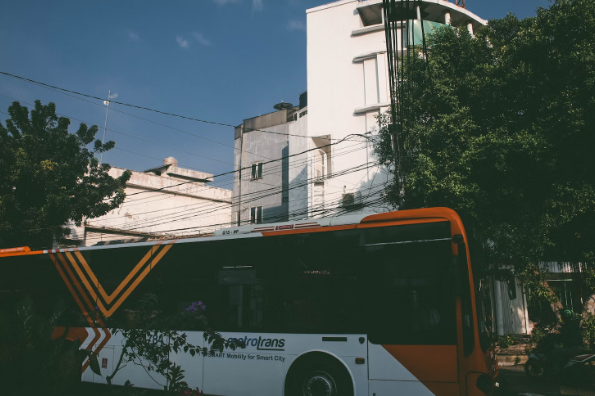Dribbling Towards Sustainability: FIBA World Cup 2023 Partners with Fairatmos to Reduce Carbon Emissions
News

As the host of the FIBA Basketball World Cup 2023, the Indonesia Local Organizing Committee (LOC), in collaboration with sustainability partners with Fairatmos, Waste For Change, and Electric Mobility Collaboration Center (EMC²), has stepped forward to deliver an international sporting event that is not only stunning in terms of achievement, but also caring for the environment.
In a global context that increasingly requires attention to climate change issues, they collaborated to implement various concrete steps to reduce carbon emissions during the event. The three primary efforts made from the start of the event on August 25, 2023, to September 3, 2023, are also the focus of this sustainability agenda.
Some efforts to reduce carbon emissions include mangrove planting, sustainable waste management, and electric vehicle-based transportation. This article will detail these three ambitious steps that aim to make the 2023 FIBA World Cup sustainable and more environmentally friendly. Let's take a look at the explanation below!
3 Carbon Emission Reduction Efforts by the Local Organizing Committee (LOC) Together with Fairatmos, Waste for Change and EMC²
Here are some of the efforts to reduce carbon emissions during the FIBA Basketball World Cup 2023 in Jakarta:
1. Mangrove Planting for Carbon Compensation
Mangrove planting is one of the main components of the sustainability program during the FIBA Basketball World Cup 2023 event. It is one of the concrete actions to compensate for the carbon emissions generated by the participating teams during the journey to the event and create innovative solutions to the challenges of climate change.
The mangrove activity began with a symbolic planting at the PIK Mangrove Ecotourism Center, Jakarta. Each mangrove tree planted can absorb large amounts of carbon dioxide (CO2) from the air. One mangrove tree can absorb approximately 43.28 kg to 86.67 kg of CO2 over its lifetime, ranging from 30 to 40 years.
2. Sustainable Waste Management for a Clean Environment
Effective waste management is also one of the focuses of the FIBA Basketball World Cup 2023 during the event to create a clean and sustainable environment. During the event at the Indonesia Arena, this approach involves sorting and processing the waste generated daily.
LOC Indonesia, in collaboration with Waste for Change, ensures that waste is not just thrown away but also processed into valuable materials, reducing the negative impact of plastic and other waste on the environment. Effective waste management is essential, as poorly managed waste can damage ecosystems, threaten biodiversity, and pollute the environment and water resources.
3. Green Transportation for a Sustainable Future
Green transportation is an essential component of the sustainability efforts adopted by Indonesia for the FIBA Basketball World Cup 2023. Collaboration with the Electric Mobility Collaboration Center (EMC²) and support from various local transportation agencies prove Indonesia's step forward in creating a more sustainable and cleaner transportation future.
In addition, the support of 6 electric buses from the DKI Jakarta Provincial Transportation Agency, TransJakarta, and Mayasari Bakti provides a strong foundation for using environmentally friendly vehicles in this international sporting event. This effort inspires greener transportation and supports the global agenda to reduce carbon emissions in the transportation sector.
Mangrove planting as a symbol of sustainability contributes directly to carbon emission compensation, and sustainable waste management creates a cleaner and healthier environment. Meanwhile, adopting green transportation with electric vehicles and collaborating with EMC² brings hope for a cleaner transportation future.
Therefore, the FIBA Basketball World Cup 2023 in Jakarta is not just about fighting for a sporting title but also about realizing the global vision of a sustainable environment. Through this initiative, Indonesia demonstrates that environmental concerns can be integral to major sporting events and inspire similar future efforts.
Through a strong partnership between the Indonesia Local Organizing Committee (LOC), Fairatmos, Waste For Change, and the Electric Mobility Collaboration Center (EMC²), these concrete steps to reduce carbon emissions and care for the environment. In the face of climate change challenges, the FIBA World Cup 2023 in Jakarta has provided a tangible example of how an international sporting event can be a vehicle to promote sustainability.
